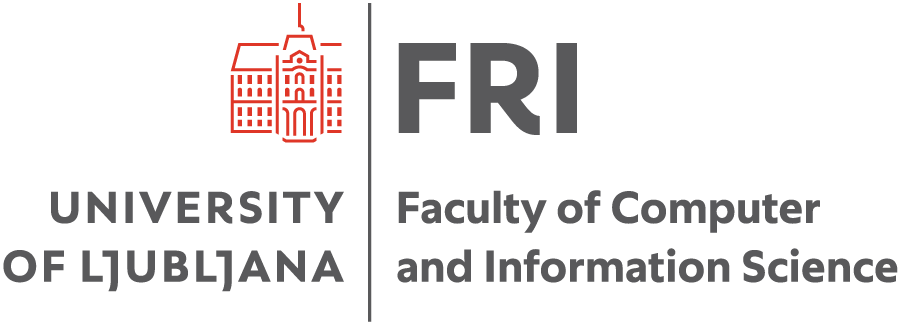- From mathematics to researching machine learning
Gregor Pirš, a young researcher and doctoral student at the Faculty of Computer and Information Science (FRI) and a member of the Laboratory for Cognitive Modelling, has just returned from New York, where he was on a research visit to Columbia University. While there, together with leading researchers he developed a new method for evaluating approximate Bayesian methods.
At the Faculty Day 2019 he received a special commendation and award for postgraduate research, specifically for his article entitled Bayesian combination of probabilistic classifiers using multivariate normal mixtures, published in the Journal of Machine Learning Research, and mentored by Assoc. Prof. Dr Erik Štrumbelj.
We talked to Gregor Pirš about his experiences with doctoral studies at FRI and researching machine learning.
How did you become set on the decision to pursue doctoral studies?
After secondary school I decided to study law, but after my first year I realised that it wasn’t for me. So I transferred to a mathematics course at the Faculty of Natural Sciences and Mathematics in Maribor. I decided on mathematics mainly because I had always had quite a good grasp of it and it’s also applicable in a variety of fields. At that time I wanted to be an actuary in an insurance company, and I even was for a time, before I decided to pursue a doctorate at FRI.
I decided to do that mainly because I had started getting to know machine learning at work. When an opportunity arose to research this field, I took it. As a mathematician I didn’t know a lot about machine learning, so coming to FRI opened up a whole new world for me. I was drawn most to Bayesian statistics and ensemble learning.
What is your field of research?
My field of research could be divided into two parts, the first being numeric data modelling and the second the combining of models. My motivation to go into this field was mainly the mentor’s work with sports data, which is dominated by numeric data. One of the fascinating challenges here is how to combine various predictions of competitions.
What are you currently involved in as a young researcher?
I’ve just returned from New York, where I was on a research visit to Columbia University. What led me to go there was that my mentor is a member of the development team for the Stan programming language, which originates from Columbia University, and that we are both involved in research in the same field. Currently I am involved in the evaluation of approximate Bayesian methods, where I am collaborating with Andrew Gelman and Yuling Yao.
My experience of the research visit up until a week ago was great, I learned a lot of new things and got to know a lot of people who are leading researchers in their fields. Sadly in the last week the coronavirus turned everything upside down and I came home early. But I hope that nevertheless we will still carry out successful research remotely.
In 2019 you received a special commendation and award for postgraduate research, for the article Bayesian combination of probabilistic classifiers using multivariate normal mixtures. What did this involve?
My mentor and I developed a new method for combining classification models based on modelling the latent structure of predictions using mixtures of multivariate normal distributions. Learning the latent structure allows the method to successfully combine biased models or models with systematic errors, which arises in practice quite frequently.
What do you want to do after completing your studies?
Since I am in my fourth year of doctoral studies, I have been thinking a lot about this lately. For the moment my first choice would be to stay in my mentor’s research group at FRI. In the long term I’m planning to return to Maribor, although I don’t yet have any plans as to what I would do there.
What advice would you give to anyone deciding on further study at FRI at the doctoral level?
I think the most important thing is to select a good mentor. I myself was very lucky, because I responded to a call for a young researcher without knowing the mentor well, since I was studying in Maribor. If I hadn’t had that kind of mentor, who invests a lot of time in my development and offers me support when things don’t go to plan, my doctoral studies would have been much harder. The other important thing is your choice of topic, which should interest you and offer potential for research.
